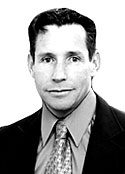 |
|
Robert DeKoven
legal writing professor
|
|
By Robert DeKoven
Arizona Daily Wildcat
Friday April 18, 2003
College journalists received a victory last week when a federal appellate ruled that college newspapers enjoy greater First Amendment protection than do high school newspapers. Many feared that an adverse outcome in the case would have allowed college administrators to pressure campus papers to censor popular columns like UC Berkeley's "Sex on Tuesday." The case involved student editors of The Innovator, a student paper at Governors State University, located in Chicago. The dean of students there ordered the printer of the paper not to print it without her approval. The students refused to give the dean prior review over the paper. The students sued. The paper hasn't published since. In 1988, the U.S. Supreme Court held that high school officials can review and censor inappropriate articles in school papers. It's worth noting that California law prohibits censoring articles. The U.S. Court of Appeals for the Seventh Circuit followed other courts in holding that the 1988 case could not be applied to college journalists. "While it's a victory so far for college media, it's likely that the college will appeal to the U.S. Supreme Court," noted Robert DeKoven, a professor at California Western School of Law and columnist for U-Wire, a syndication service for college newspapers. DeKoven noted that it is possible that the Court will accept the case for review because there is a conflict in the circuits now with regard to whether college students and high school students are the same.
Even though a recent federal case held that First Amendment law relating to high school students does not apply to college students, a federal court with jurisdiction over the western United States reached a different result, and the Supreme Court elected two weeks ago not to review that case.
The United States Circuit Court of Appeals for the Ninth Circuit ruled that the University of California could censor and punish a student for writing critical comments in the "Acknowledgements" section of his master's thesis.
A three-judge panel heard the case, and two judges found that college students had no greater claim to free speech rights in the curricular context than high school students. Citing a 1988 Supreme Court case, Hazelwood School District v. Kuhlmeier, which approved of censorship of high school papers, the court found that the personal acknowledgments contained in an academic document are not subject to any First Amendment protection.
The case began when Christopher Todd Brown, then a graduate student at University of California at Santa Barbara, attempted to insert a "Disacknowledgments" section in his thesis after his thesis committee had approved his thesis.
In the section he insulted university administrators and then-California Governor Pete Wilson. Brown's thesis committee had already approved his thesis in materials science.
After the approval, Brown inserted the offending section, which criticized school officials and Wilson for interfering with his education. He filed the thesis with the school library (as required). Upon discovery of the critical remarks, the committee revoked its approval of the thesis. This resulted in Brown being unable to earn his degree and having to spend another year at UCSB. Even when Brown removed some of the "offending" language, the committee still refused to approve it.
Brown contended that the action violated the First Amendment because school officials retaliated against him for his criticism. He also argued that the university had singled him out. He pointed out numerous other academic papers like his that review committees had approved, many of which contained insults, vulgarities, and one which contained a veiled death threat to the "dumbass" responsible for causing a lab to flood, destroying his work.
Nevertheless, one judge found for the university because, even though the university had a practice of allowing students free reign with regard to statements made in the "acknowledgments" sections, the university had the right to treat the section as academic speech and the author was not entitled to First Amendment protection. Another judge simply said Brown had engaged in deceit by not including the offending section his original submission to the committee.
Writing in dissent, Judge Stephen Reinhardt "vehemently" disagreed with his colleagues. He noted that the court had adopted "an erroneous First Amendment standard · regarding the authority of public universities to limit the speech of graduate students that I believe to be wholly inappropriate ÷ a standard that would seriously undermine the rights of all college and graduate students attending institutions of higher education."
While the opinion stressed that it only applied to so-called "curricular" speech, it's possible that school officials, at least in some western states, may now believe they can censor school papers, speakers, musical acts, plays and the like.
Even as applied to curricular speech, the case spells the end of student dissent in the classroom. A student who disagrees with the views of a professor would have little or no recourse, even if the student could show that the punitive action against him or her was motivated because of the student's protected speech.
Harvey Silvergate of the Foundation for Individual Rights in Education called the decision "outrageous" and F.I.R.E. appealed the case to the U.S. Supreme Court, which denied review several weeks ago.
With an apparent conflict in the circuits over the means of Hazelwood as applied to college students, the Seventh Circuit case could be ripe for review.
Robert DeKoven is a professor of legal writing at California Western School of Law. He can be reached at letters@wildcat.arizona.edu.

